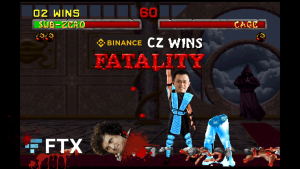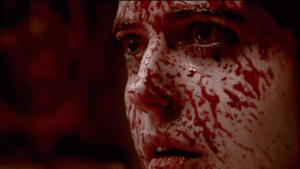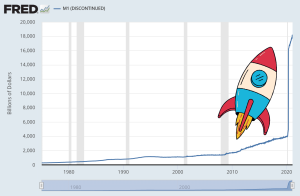
Soooo… needless to say 2020 didn’t exactly go as planned. All of the things I thought I was going to focus on, places I was going to see, completely boring normal-people stuff I was doing to do… all tossed out the window. Oddly enough though, the year was quite beneficial for me. That’s not to say that I liked everything it threw at me, frequently quite the opposite, but it is leaving me as a better version of myself than the year before.
The challenges thrown out helped me learn quite a bit more about myself. How my brain works, what things are truly important to me, and how I’d like to move forward living my life. A lot of things that I thought defined me turned out to not be all that important, and a lot of things that I didn’t care about at all turned out be at the top of my list.
So here’s a little list of the things I’ve learned this year, and how they’ve helped me. If you’re expecting my typical writing style full of memes and lame jokes, my apologies. It’s just not what flowed out this time.
First lesson: Reduce dopamine hits
Based on my admittedly limited understanding, the broscience definition of dopamine is that it creates the little reward feeling when we anticipate receiving something pleasurable. It in turn increases “reward seeking” in humans. Unfortunately though, modern society functions in a way that leaves us always chasing the next “hit” of dopamine. Social media, email, news (especially 2020 news), etc play with our emotions. The goal of most of these apps is literally to get us hooked. To get a little reward response each time we check it (go to Facebook and check your notifications, close it, and come back 5 min later. You’ll have a new notification). We aren’t biologically built to have this onslaught of stimulation.
I’m personally extremely susceptible to this little form of addiction, but at least I’ve learned it now. On top of the traditional list of suspects, I can also (read: do also) get hooked on things like checking metrics, market prices, SEO rankings, analytics, etc. When I get caught up in it all and am lucky enough to realize it, I find myself frequently thinking of Taleb’s story of the dentist turned trader, and its negative impact on his emotions despite being successful.
For me, a huge win has been actively trying to decrease the amount of stimulations that I receive. I’ve had to take extreme measures though, as my addictions are strong. I hide my rank tracker and analytics logins and make them a pain in the butt to retrieve. I remove social media from my phone so I can only use it on desktop. If I want to share the rare post on Instagram for example, I make myself download the app, post, then delete it again. If I don’t, then “just one quick look” snowballs quickly. Just consciously knowing this has made a big difference. When I fail and get caught in the snowball, I feel noticeably worse at the end of the day.
My morning ritual
I have tripled down on my morning ritual, and have seen amazing results. I ebb and flow with this, and admit that sometimes it’s still a struggle, but even if I’m only successful part of the time it still pays massive dividends.
I believe each person should have their own personal ritual tailored to them, but here are some of the things that work well for me.
- For starters, my phone stays in airplane mode all morning until I complete my routine (this alone can 2x my productivity for the day, as I tend to leave airplane mode on longer).
- I focus on my mental health first. For me, that is generally reading Stoicism or some old Zen texts while having my morning tea, using a meditation app, and journaling specifically about those topics afterwards. In good weather I sit on my back porch during it all, which is a great peaceful start. I watch the birds and the squirrels play, and realize how good of an old man I’m going to make.
- After that I generally will head straight to my laptop, but I limit what I work on at first. I try and harvest what is the most productive time of my day, before the distractions roll in. I attempt to just work on “the one thing” that will help my main goal progress. The deep work.
My friend Chris Sparks says something along the lines of (paraphrasing) “once you break your morning attention span, you don’t get it back“. Once I hop into email, check one single message, or anything else in that realm I’m gone. My brain has lost its edge and it won’t come back until tomorrow. So I push back anything besides deep work and my most important tasks at the start of the day, and leave the admin work for after lunch (as an example, I’m writing this post in the morning during airplane mode, otherwise the busy work would keep it from ever going live).
Refining the art of letting bad things happen
I believe I first heard of this idea from Tim Ferriss. Basically the idea is that you consciously ignore some things that you know are going to lead to problems, but that those problems are really a good thing overall. They are unimportant in the grand scheme, and in welcoming them you’re making a tradeoff for something better.
I’ve done this in several ways, but one specific way this has shown itself has been making the somewhat painful decision to just not be as responsive to communication. I rarely check my social media messages and message apps, I let emails go too long, and Slack… yikes. On top of this I’ve been choosing to ignore non-core business projects that aren’t the best use of my time. Maybe I have a great idea for a new affiliate site, does that mean I should work on it? No, it probably won’t move the needle.
The tradeoff to this has been my ability to work on higher leverage tasks that DO move the needle. The ability to push what is more important in the right direction. To ignore the pennies and focus on the dollars.
Having a not-to-do list
One thing that has helped me in my quarterly planning is making a NOT-to-do list
But not like a "avoid sugar" list. Instead, a list of solid potential projects that I'm consciously saying no to for now
If I don't choose what to ignore then I try to do it all and succeed at none
— Travis Jamison (@Travis_Jamison) October 5, 2020
We all have very limited bandwidth. And even less highly productive time. I’ve added a subpage to my quarterly planning Notion document titled “the not to do list”. This is in the same realm as the art of letting bad things happen, but it’s more deliberate.

Basically the gist is that if I don’t make a list of things that I am consciously going to ignore then I just end up spinning my wheels and not making progress on anything. Trying to do everything, leads to succeeding at nothing. Trying to go in every direction leads to me standing still.
So I just list out stuff that I’m consciously deciding not to do. To be clear, these are things that I WANT to do, but I’m choosing not to. This includes websites I own that I will have to ignore, despite having good ideas for them. This includes new projects that I can’t start, etc
I can always pick them up later in the next quarter if it makes sense, but I’ve noticed that if something doesn’t make the cut in one quarter, it most likely won’t in the future either.
Quality sleep insurance
When Covid hit, I went deeper down the rabbit hole of looking at my financial life from different angles. Markets and businesses were obviously crashing at the same time, and I personally was not quite sure how my companies would fare. It was (and still is for many) a frightening time.
I found myself spending an inordinate amount of time thinking about this fantastic post on the Dragon Portfolio. I’ll try and summarize (but excuse me, I’ll butcher it). The basic idea is about how to build a portfolio that can stand the test of time (100 years), and survive and even thrive in most conceivable market events. To do this you build a portfolio that has something for when times are good (stocks), something for when shit hits the fan (tail risk hedges), times when inflation is crazy (gold), and so on. I won’t get into the specifics, but I highly recommend reading it yourself for the full picture.
So the general point is that a portfolio constructed like that has historically performed better over long periods of time, but I actually saw it as something a bit different. To me, it’s a portfolio constructed in a way to provide the best possible sleep no matter what is happening. A-grade sleep insurance.
To me, even if the premise about superior returns didn’t pan out, I would happily give up moderate returns in exchange for increased peace of mind.
So I full-on drank the Dragon Kool-aid. However, the more I thought about it the more I thought that the full portfolio construction doesn’t make sense for me personally. If I had a traditional 9-5, or if my entire livelihood was derived from a retirement portfolio then I would most certainly be all in, but my life and my career is vastly different.
So I took to mentally constructing my own personal version, a “Dragon Portfolio for entrepreneurs”. A major chunk is built around having cash producing assets (businesses) in true non-correlated industries. Who cares about the sticker price of a business if it is paying the bills? Add to that some “oh shit hedges” such as gold and Bitcoin and the picture starts coming together a bit. I might make a bigger post on this in the future, but it’s been a rewarding and calming exercise.
Know when to ignore the plan
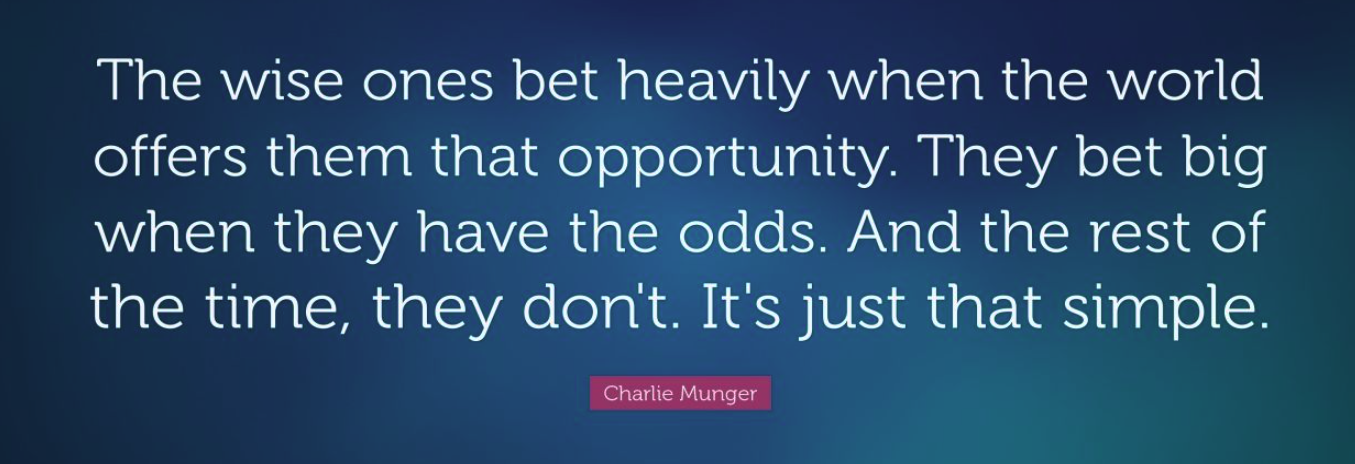
Really good opportunities are rare, sometimes it’s really important to just be opportunistic.So with all of that talk above about building in systems and concentrating on important goals, there have been several times this year when I’ve completely ditched what I was working on because something incredible popped up. I believe the world will generally throw awesome opportunities in front of you, but not very often, so you need to cherish them and move fast. I think it’s important to know when you should drop everything else and run with something. Bet heavily (with time or with money) when the odds are in your favor.
A couple of these came my way in the last half of the year. One was buying an investing newsletter from Richard Patey, which we then morphed it into the investing.io community (something I am very bullish on over the long term). I expect this to be both personally and professionally something very fulfilling over time. If I ask myself the question “would I still want to be working on this in 5 years”, the answer is a clear yes.
The other was Defi. I don’t want to get into too many details, as I’m incredibly hesitant to recommend it to anyone (it’s degenerate AF), but it’s been incredibly lucrative (and fun) to be involved in the right projects at the right time and I am very grateful for those awesome people who have helped me.
It’s good to be aware of when you should drop the plan, and swim with the current.
There is no “finished”
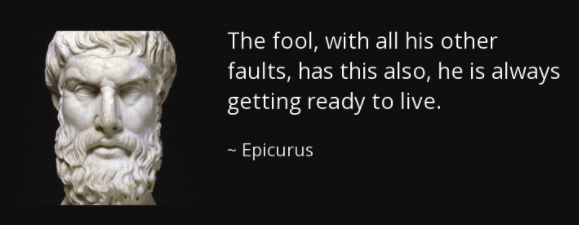
Everyone has their own demons and their own strengths. For me, I have always had a fairly easy time pushing through work, being disciplined, and “preparing”. With this in mind, I find it easier to just work harder than to actually enjoy myself. I have fooled myself countless times that “after I accomplish or achieve X, then I’ll start to do Y”. However, those goal-posts of life somehow keep moving further away each time I accomplish something else.
One possible reason with my obsession with doing more is that I keep trying to reach this magical place of where everything is now done, just as it should be. “Ah, now I can relax”. This is a mythical place. Business is messy, there is always something you can do, always something to improve. Lusting after the idea of “finished” is missing reality. Finished is a mirage, it does not exist. This will be an ongoing battle with me, but awareness is the first step.
How (and where) I want to live my life
During some of my weekly reviews I started noticing a pattern. When I would review my schedule, or think about what I did, it became increasingly clear that the time I enjoyed most was that which I shared with other people. I’m introverted by nature, so this was a surprise. My wife and I’s simple weekly date night (at home), my scheduled weekly call with my dear friend David Hehenberger, or literally EVERY time I caught up with a friend who I haven’t talked to enough lately. Without fail every single time these turned out to be the highlights of my week, while I could barely remember any of the other stuff I spent my time on.
This theme also spilled over into a big life move. Fabi and I made the ginormous decision to move to my hometown of Asheville. After a decade of living in massive cities abroad with near endless travel, and with dipping my toe in Charlotte for a bit, I never would’ve guessed I’d end up back home. But here we are. Thanks Covid.
When I was living abroad one of my biggest gripes was the transience of it all. I made great friends who I still love to this day, but with everyone coming and going it was hard to really fully commit. Moving to Asheville will let us focus more on family and close friends, while (post-plague) promoting more casual and repeated interactions in the real world (good overview from Nat Eliason on that). It also doesn’t hurt that the quality of life and food scene in Asheville is world-class. We bought a house that we’d be happy in for decades, and hope to be all moved in by February.
What about my failures?
Everything I’ve listed as a success, has also been a failure. My morning ritual, avoiding dopamine hits, building deeper relationships. I’ve failed miserably at these things more times than I can count, but that’s actually ok. I don’t need to be perfect. Even if I’m successful only 25% of the time, that still is pushing me in the right direction, and it appears to compound. When I “fall off the wagon” with these things I realize it’s okay, life is messy, restart and move forward.
It reminds me of meditation in a way. You will catch your mind wandering a million and one times, but that’s ok, each time you do you just bring yourself back to concentrating on the breathe and you start again. It’s not a failure, it is the process.
A special thanks to everyone that I work with, I’m extremely lucky to be surrounded by world class people that I can depend on at all times. Y’all are rockstars. Also a thanks to Taylor Pearson for the priceless coaching sessions. The clarity you bring will pay life-long dividends.

